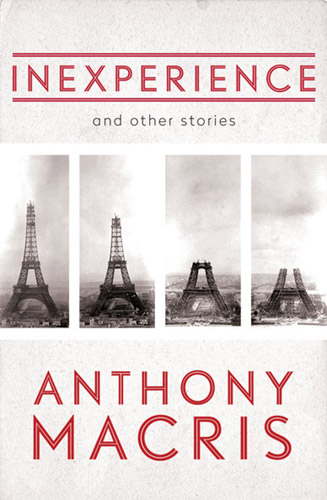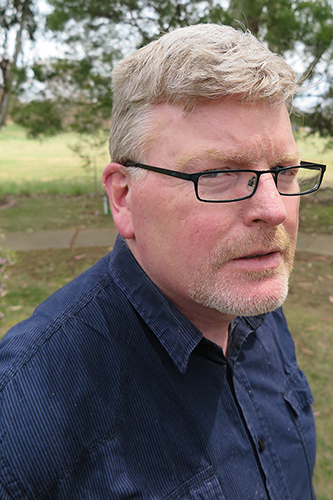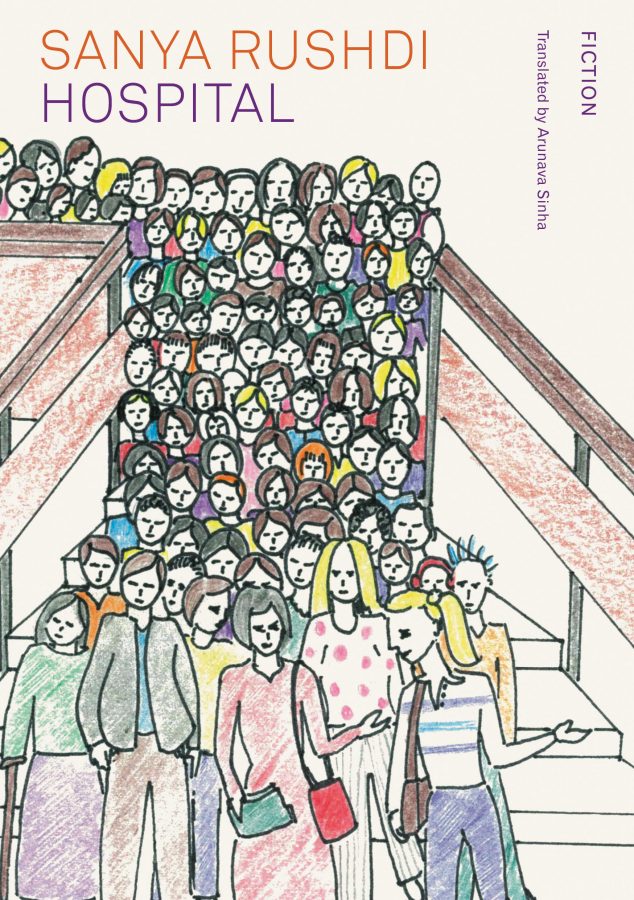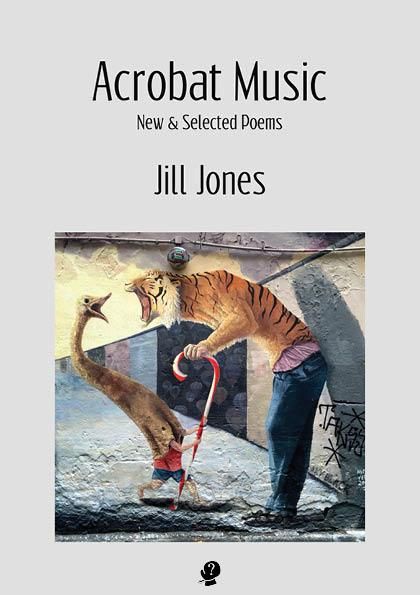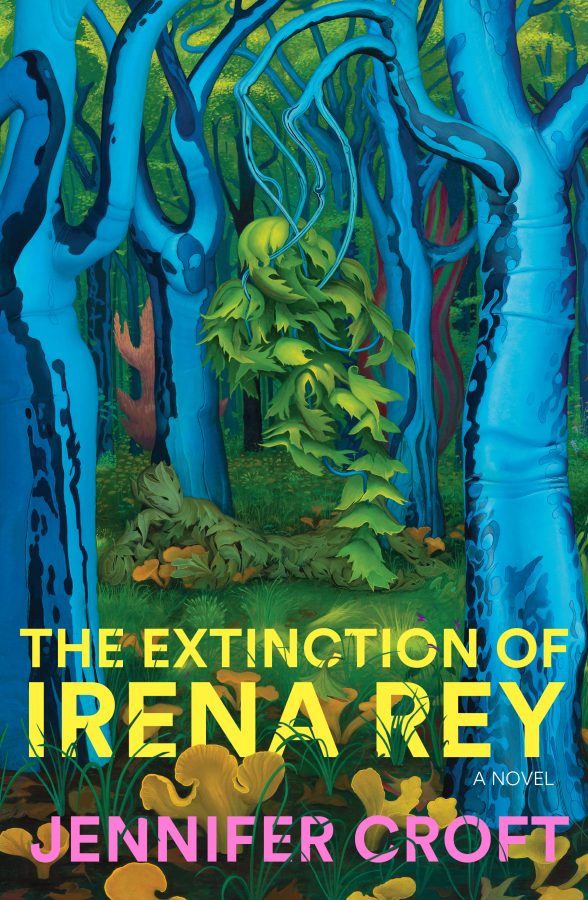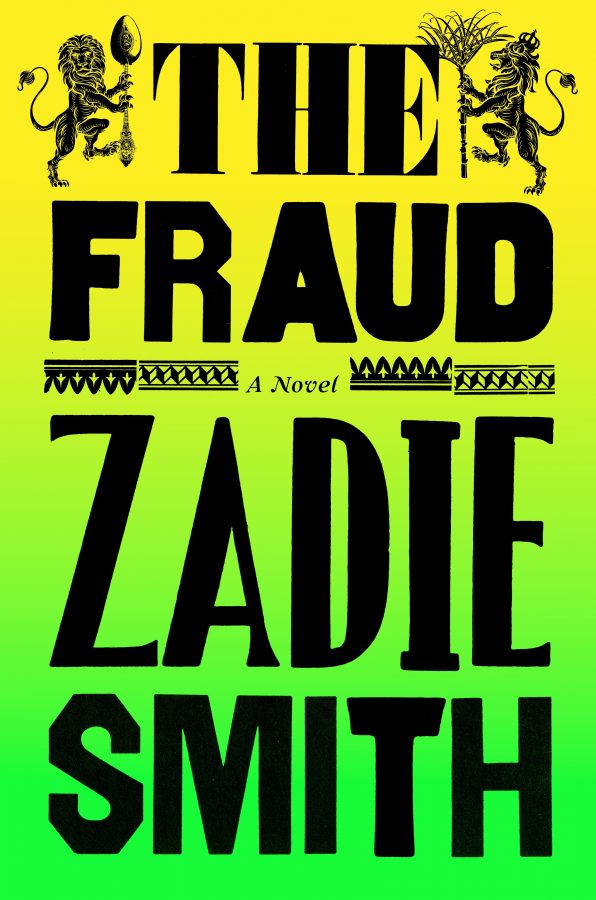In Vladimir Nabokov’s Pale Fire, the New Zealand critic and biographer Brian Boyd makes the case for having to read, re-read, and re-re-read Nabokov in order to peel back the layers of meaning and get as close as possible to a ‘solution’ to the problems his texts pose. The model is linked to Nabokov’s understanding of the Hegelian dialectic, which in Speak Memory he presents in the form of a spiral: the thesis (a surface reading which begins the curve), the antithesis (a counter reading that draws the curve back) and the synthesis (a final turn that continues the second but also retraces the first). Boyd sees puzzles at the heart of Nabokov’s works – but finding a solution to a puzzle, even if it is there, is not completely satisfying. Even with Nabokov, there is something more, some residue of meaning that can’t be reduced to a simple answer.
Anthony Macris has little in common with Nabokov. There are no structuring puzzles in his latest work, Inexperience and other stories, or the Capital novels, Capital Volume One, The Great Western Highway, or his non-fiction work When Horse Became Saw, which grapples with his and his partner’s entanglement with the challenge of their son’s autism. But, as Macris sees it, there are problems or problematics that structure both the world and representations of the world, and these in turn force him to tell his stories in a certain way.
There are two reasons for this opening gambit, then. First, let’s say we look at Inexperience and other stories three times, because there are layers here as well. Second, let’s think about the idea of structuring. Overlaying these processes, though, it is useful to consider the overarching themes of love and capitalism, which Macris has indicated are central to him.
1. Surface: Ideals of Reading
Elsewhere in these pages, in his SRB essay ‘The novel, sense-making, and Mao’, Anthony Macris posed the question as to whether our activities as readers have been programmed, narrowed, by conventions. He sets up two recent traditions of representation – the modernist, and the realist – and points to the potential for each to learn from the other. What worries him is that this is not encouraged and, that, instead, we are being directed to Platonic ideals of reading. He writes:
Certain stylistic aspects of realism – showing over telling, concrete simple sentences, chronological time, characterisation driven by the identification effect, act structures that are driven by conflict and punctuated by plot points, etc. – have now become the definition of what good writing is, rather than simply being recognised as one set of effective tools to create a narrative. In recent times the dominance of such techniques, I would argue, has become so great that it threatens the diversity of the delicate eco-system that constitutes a vibrant literary culture. To a large degree realism has become the only literary language that is allowed to be spoken, silencing all others.
If this is the case then our first reading of any literary work is likely to be drawn to things like plot, character, setting and action.
There are two parts to Inexperience and other stories: the substantial novella ‘Inexperience’, and three short stories, ‘The Nest Egg’, ‘Triumph of the Will’, and ‘The Quiet Achiever’. The latter three have previously been published elsewhere and are slightly modified here. The novella appears in full for the first time in this volume, though short extracts of an earlier version had been published.
‘Inexperience’ traces the breakdown of a relationship during a long-anticipated trip from Australia to Europe. The protagonists, the unnamed narrator and his girlfriend Carol, are both well-read and stylish. It is their interest in the visual arts, architecture, and fashion which determines their old world holiday itinerary. They start in Spain, which promises the right mix of culture, sun and socialism – but, faltering dramatically at the first challenges thrown up by the strangeness of their surroundings, they flee to Paris and try to stem the bleeding of their relationship. This fails too. Carol leaves, and the narrator is abandoned to his own now-corroding self. He is kept from disintegration by another brief encounter with a new charming companion, Heather, a young Englishwoman on the continent to seek out a lover to test the strength of her relationship with her own fiancé. The novella ends with a flashback to the balmy beginning of the trip, when Carol and the ‘I’ were astonishingly happy, sitting in an architecturally and culturally nondescript shopping mall in Bangkok, sharing their dizzying excitement at what they might be about to experience.
‘The Nest Egg’ recounts a self stuck within a compulsion in a voice that is reminiscent of Dostoevsky’s underground man. This self wants to save money and fixates on how this might be done with limited means or prospects. He has nothing but the will to self-discipline (currently not sufficiently strong, but no doubt able to be trained) and the capacity to equate logically every potential action or event with its monetary value. The self splits, and the narrative voice moves from the first person to the third person pronoun to attack more effectively its own weaknesses in an effort to achieve the indeterminate savings goal. The effort, at last, collapses. The third person narrator turns with disgust from the protagonist who could only ever fail to achieve his goals, even as he remained steadfastly convinced of his capacity to achieve them.
‘Triumph of the Will’ and ‘The Quiet Achiever’ are separate stories linked by the character of a young shop owner in the suburbs of an Australian city. In the first story the young man lies awake, unable to stop thinking about his declining business. The small shop is situated too far from the main drag and nearby a shopping mall is under construction that threatens to take away his remaining business. To overcome his own powerlessness he has successfully lost weight by following a strict regimen. This was in part made possible by a contempt for his mother, with whom he still lives, who loves to feed him calorific snacks to cheer him up. At last, through triumphant self-discipline, he wills himself to sleep. In the second story a first person narrator recounts his visit to a ‘psychotherapeutic clinic’ to see a cousin who has just been driven to a nervous breakdown by the failure of his small business. The cousin clings to his relative, pointing him towards an object, a candle, that he has made by hand in the activity centre of the clinic. The object is over-determined with value as something which might give meaning to his life, his self. As if this object produced through his own manual labour might somehow be recognized objectively by those in the room, the suburb, the city, the world, as a powerful achievement.
2. Re-reading: Making Meaning
Even the surface skimming of the works offered here brings with it an awareness that Macris is in dialogue with forms from the late nineteenth and mid to late twentieth centuries. While I started by mentioning Nabokov, he is not the Russian author one thinks of when considering Macris. Along with Dostoevsky, Gogol springs to mind, even though the strangeness of Macris’s stories are not derived from uncommon states; rather, everyday, mundane events are amplified within selves that are captive to modes of behavior within social formations. In ‘The novel, sense-making, and Mao’, when linking realism and modernism, Macris is thinking in particular of what he calls classical realism, which for him is best exemplified by Gustave Flaubert, who draws the subjective understandings within characters together with the social and representational forces that form and deform them, trapping them within their own collapsing or exploding inner worlds. When he talks about modernism, he is thinking in particular of the late modernism of the French nouveau roman of the 1950s and 1960s and the structuralist understandings that informed their own representations. Here, the mise en abyme, the collapsing of self into self, or of reflected world into its own reflection, becomes generative. That is, it becomes productive: it produces an idea of the world (the world of capitalism) that is self-propagating and swallows all other rival views. It produces an idea of the self that consumes itself trapped within a logic of paranoia and compulsion.
Macris has written at length on the ‘generative mise en abyme’ (‘Claude Simon and the Emergence of the Generative Mise en Abyme’; ‘Sunday Night at the Movies: the Generative Mise en Abyme-as-Socius’). In these essays and elsewhere, Macris is concerned with the creation of meaning. His understanding of this problem is highly sophisticated and subtle, and it is worth trying to unpack elements of it here in order to develop a second reading of Inexperience that might take us deeper than the first.
In an interview I undertook with Macris last year, ‘Perception and Sensation in the Capital Novels: Representing the city in literature’, the author underlined how, in seeking to address more adequately his inescapable themes of love and capital, he has developed an understanding of the ‘choisime’ or ‘thing-ism’ that he derives from the nouveau roman. It begins with what Macris recognizes as a naïve idea: that ‘there can be an isomorphism between words and things’; yet this naïve idea becomes creatively productive if it is taken seriously.
That is, while it might not be true in fact it can open the way to otherwise obscure truths since it allows a different point of focus. To put this another way, Macris’s choisime moves away from a dualist conception of mind and body (or in fiction, the subjective perspective of a self and the representation of the world that self inhabits) toward a materialist conception that fuses mind and body, self and world. The glue that binds these parts into one are words themselves: what in structuralist times we would have called ‘discourse’; what in Marxist terms might be called ‘ideology’. What is interesting in Macris’s comments is how ideas might be drawn into works through formal means. Even if we put in brackets the truth-value of the claim that ideology creates our selves and our world, we can still test the efficacy of this claim as a means of examining the meaning of experience. Macris states:
[…] by understanding perception as external to the subject, we can find an inroad into classic modernism that points to the kind of materialist emphasis I’m interested in. It seems a really useful way to understand how we experience, how we sense, cities. And it’s this external quality of perception that is useful as a departure point for thinking about how I’ve set about trying to get beyond the mind-oriented dualism. The process is one in which I convert perceptions into signifiers, the physical embodiment of signs. As a novelist, the signifiers are words. A sentence for me is a concrete entity.
The meaning of ‘experience’. To focus my second reading, it is worth turning to something that is clearly of great importance to Macris, the title. The title of a story in some way needs to encapsulate the story as a whole, to speak to its themes in a way that directs the reader’s understanding without constraining it. In ‘Inexperience’ the relationship between Carol and ‘I’ begins to unravel – yet they persist with their plan of visiting the major artworks that interest them. The work that they are most looking forward to, both from I’s abiding interest in the visual arts (he once wanted to be a visual artist) and the tourist brochures they read on the bus to the city, is the painting The Burial of Count Orgaz by El Greco, which is on display in the Church of Santa Tomé in Toledo. When they arrive they are herded into a waiting area with hundreds of other tourists. Eventually the couple are given three minutes to look at the picture, but they are so far back in the crowd that they are unable to catch anything but glimpses of the upper part of the canvas (in I’s case) or nothing at all (Carol is shorter). Carol recommends that they enjoy the experience. When pressed on this, she clarifies that getting through the process of standing among the crowd in stifling heat without collapsing will be experience enough, to which the I counters, ‘A real inexperience’, and Carol rejoins sharply, ‘Something you’re expert at’.
‘Inexperience’ refers at once to naivety, and being unable to properly experience the world. It is an incapacity. But it also makes one think of being in or within experience, as if experience itself carries with it an incapacity, an incapacity determined by the tainted words that form the experience itself. What kind of place has the church that displays this famous painting become? A product of the tourist trade, an idea of itself more than a real place – a place impossible to experience because it has been modified and mediated by the capitalist system into which it is now embedded.
The title ‘The Nest Egg’ refers to a sum of money adequate to meet whatever desires might occur at some future date. The story shows how capitalist forces work on the world of those of modest means the way religious discourse used to work on the world of European peasants: forget the miseries of the present, yours is the life to come! The irony here is in part conveyed by the overtones of fecundity or birth promised by the idea of the egg and the warmth of hearth promised by the nest. Like a cuckoo chick the idea of the nest egg, however, forces everything else from the scene: there is nothing left to love but the parasite who has murdered your loved ones and demands to be fed.
The title ‘Triumph of the Will’ alludes to Nietzsche and Leni Riefenstahl, but they are down in the mix here. Rather, Macris makes us focus on the words ‘triumph’ and ‘will’. The will of the protagonist, rendered powerless by the awesome market forces that dwarf him, is reduced to those tasks that immediately pertain to his own body: when to eat and when to sleep. Yet even these choices are mediated by capitalist programs: the Fit-for-Life diet he embarks on, the self-help technique of sending the body to sleep part by part.
‘The Quiet Achiever’ alludes to an advertising series produced by BHP that focuses on ‘small’ individuals, a baker in his bakery, a miner in his mining hat. These people, confident and radiant in the satisfaction with their lot, don’t ask for any song and dance to celebrate them. They go about their business, but they are the salt of the earth we all need. Just like BHP. By contrast the protagonist, his story having passed from his small business to nervous collapse, to self-excoriation for the bitterness he had formerly directed towards his mother, fetishizes the achievements he is now allowed through his stay in the mental health institution. Having been destroyed he is allowed now to fantasize about the importance of small things. In no sense does the story ask us to despise him for this; rather, we experience his own sense of achievement as a generalized trauma inflicted on selves by the meanings given to words now controlled and deformed by market forces.
3. Love and Capitalism
While Macris underlines the importance of the themes of love and capitalism to his works, the focus on love is not so apparent in his first book Capital: Volume One (1997), which shifts its focalization between a range of protagonists, including a pregnant mouse and a Lucozade bottle being kicked along a passageway. Yet the protagonists are drawn together by the London Tube: both a symbol of aging modernism and a network of real connections enabling the proper flows and forces of the market system that inhabits and vitalizes it. The protagonists are not so much agents within as effects of those forces.
What differs with the later fiction, perhaps, is a failure of confidence that such forces can be sufficiently understood to be effectively opposed. Great Western Highway is subtitled ‘A Love Story’ and here the protagonists Nick and Penny are trying to force their way between the fissures of the words and experiences possible in the world they inhabit to find some kind of meaning that is not reducible to or wholly determined by what we might once have called ‘discourse’ or ‘ideology’. Alongside the critique, then, alongside the astonishingly robust and coherent method Macris has built, is a kind of sensation that moves beyond words, even while those words have become, in our neoliberal dystopia, ever more hectoring, ever more belittling, ever more assured of certain certainties, ever more phatic.
The non-fiction work When Horse Became Saw too is a labour of love, as is all too apparent. The events that served to build this book, which saw Macris and his partner dedicate themselves to providing a fulfilling life for their son, also forced a gap between Macris’s dazzling first novel and what has now at last begun to emerge with the publication of Great Western Highway and Inexperience and other stories. So far, no doubt constrained by how the market would have us judge the value of fiction, the fact that Anthony Macris is one of the most important novelists currently writing in Australia has not been fully recognized. It is something we need to try and understand.
References
Brian Boyd, Vladimir Nabokov’s Pale Fire: The Magic of Artistic Discovery, Princeton: Princeton UP, 1999.
Anthony Macris, Captial Volume One, St Leonards: Allen and Unwin, 1997. Republished by UWA Publishing 2013.
Anthony Macris, Great Western Highway: A Love Story, Crawley, UWA Publishing, 2012
Anthony Macris, When Horse Became Saw: A Family’s Journey Through Autism, Camberwell: Penguin, 2011.
Anthony Macris, Inexperience and other stories, Crawley, UWA Publishing, 2016.
Anthony Macris, ‘The novel, sense-making, and Mao’, Sydney Review of Books, 20 October 2015.
Anthony Macris (interviewed by Anthony Uhlmann), ‘Perception and Sensation in the Capital Novels: Representing the city in literature’, Axon, Issue 8,
Anthony Macris, ‘Love Goes to Market’, HEAT 10, New Series, edited by Ivor Indyk, Artarmon, 2005.
Anthony Macris, ‘Claude Simon and the Emergence of the Generative Mise en Abyme’, Journal of the Australasian Universities Language and Literature Association, 99:1, 50-66, 2003.
Anthony Macris, ‘Sunday Night at the Movies: the Generative Mise en Abyme-as-Socius’, Journal of the Australasian Universities Language and Literature Association, 2008: 109, 1-25, 2008.
Vladimir Nabokov, Speak Memory: An Autobiography Revisited, New York: Vintage, 1989.
